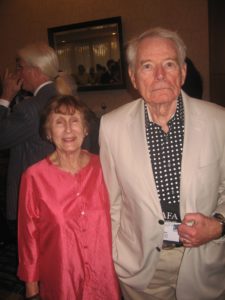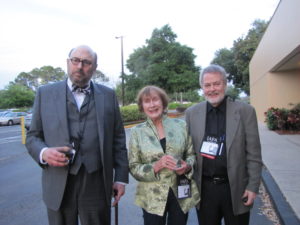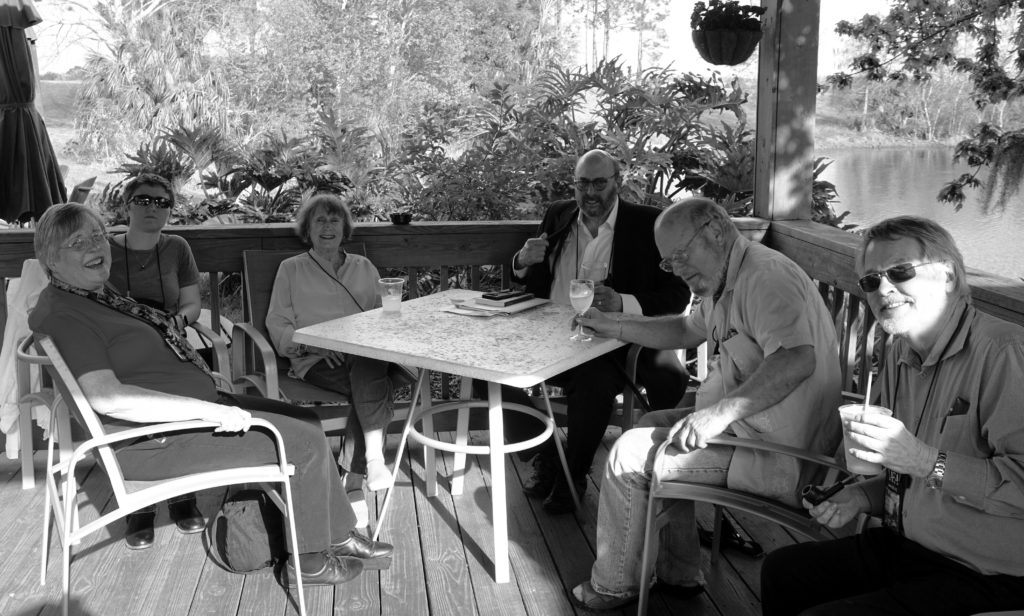Planetary Cultural and Literary Studies: New Epistemologies and Relational Futures in the Age of the Anthropocene
deadline for submissions:
October 15, 2017
full name / name of organization:
Research Center for Planetary Literary and Cultural Studies, Université de Montréal
contact email:
heike.harting@umontreal.ca
**Le français suivra**
Co-chairs: Simon Harel, Heike Härting, and Imen Boughattas (Université de Montréal)
(An Interdisciplinary and Multilingual Conference on Planetary Literatures and Culture—March 22-23, 2018, Université de Montréal)
Planetary Cultural and Literary Studies has been an emerging field of research in the humanities over the past few years. Although closely related to the environmental and digital humanities and to global indigenous research agendas, the rise of planetary studies is also a response to the various ideological predicaments of cosmopolitan cultural studies, globalization and postcolonial studies. This conference seeks to disentangle these predicaments and to help articulate a number of approaches towards an institutional and communal practice of Planetary Cultural and Literary Studies. To this end, the conference explores new ways of thinking the planet, planetary life, space and time, human and non-human relations in the era of the Anthropocene.
The Anthropocene designates a fracture in planetary history. It is the first time in the planet’s history that humans are responsible for having changed its geological and ecological constitution. As a concept and geological era, the Anthropocene provides a direct link between human culture and behavior and the possible demise or survival of the planet. While this uncertainty of our planetary future has prompted a rise of scientific debates and conferences across the natural, social and hard sciences, the humanities have yet to engage in a sustained critical and interdisciplinary inquiry into the cultural and human consequences of the Anthropocene. If the Anthropocene requires us to rethink our inherited notions of time, it also invites us to rethink the tropes and narratives through which we understand and share the planet. As such theorists as Christian Moraru, Pheng Cheah, and Masao Miyoshi have suggested, the notion of the planet conceptually designates a relational world-system, a non-anthropocentric and open structure characterized by multiplicity, complexity, multifariousness, and constant metamorphosis. Thus, the planet emerges as an ethico-political and narrative project characterized by multiple indigenous and cultural adjacencies. It engages in discursive and aesthetic strategies of re-worlding space, language, and subjectivities. What this conference seeks to explore, therefore, are the ways in which literatures and art from various cultural contexts contribute to the making of multiple, relational, resisting and/or competing planetary futures and imaginaries.
Questions to be discussed include:
How do we imagine the ways in which cultural and social relationships that map the planet in myriad and often unequal ways are responding to and are changing at the dawn of this new planetary era? Do we find ourselves at the crossroads of the global and the planetary, the human and nature, or are we immersed in irreversible crises? How do we imagine planetary communities of the human and the nonhuman? How do we imagine the planet from the “brink” (Matthew Omelsky), through an apocalyptic abyss? How do we imagine new non-anthropocentric possibilities and futures? How does planetary time differ from global time and space? How do we imagine collectively shared, more justly distributed and inhabited planetary space? What constitutes a planetary consciousness? Who creates it how and to what end? How does a “postmodern planetary consciousness” (Paul Gilroy) differ from a postcolonial planetary consciousness? What does it mean to see and articulate the planet, as Spivak argues, as a figure of “alterity”? How do contemporary and period-based literary and cultural texts/ images configure planetary time, connectivity, crisis and reconstitution? What is the place of planetary cultural and literary studies in academic and public communities and institutions?
Keywords and topics to be addressed:
– Planetary futures and geological time in culture and literature (e.g., “postcrisis” narratives/fictions [Omelsky])
– “Archeologies of” Planetary “Futures” and “other Science Fictions” (Fredric Jameson)
– Literary, social and cultural imaginings and re-imagings of the Anthropocene (as theme, genre, and aesthetics)
– planetary modernities and/or beyond planetary post-modernism
– the “planetary geographical imagination” and “trans-local relationalities” (Tariq Jazeel)
– “geo-piety” (Gilroy) and “feeling planetary”/ the making of a planetary consciousness
– Afroplanitarity/ African Science Fiction
– “Species thinking” (Dipesh Chakrabarty) and interspecieism/ the human and the nonhuman/bioart
– Intersections of planetary and post-race epistemologies
– Cyborgs, bioconnectivity, and other genders in a planetary world
– The relevance or obsoleteness of area studies in relation to the rise of planetary studies
– Planetary urbanisms and digital commons
– Critical social and cultural relationality and translocal resistance movements
– Planetary philosophies and cultural practices from and through the brink (emphasizing indigenous and non-Western philosophies of the planet, universality, and relationality)
– Imagining social relationships through outer space exploration
Submission Guidelines:
Please submit abstracts of up to 300 words for 20-minute-long papers that address any of the issues or questions listed above. Abstract and papers may respectively be written and given in English or French. We also invite proposals for collaborative panels that take an innovative approach to the received conference format, individual performances, films, videos, short plays, or/and poster presentations. For collaborative panels we ask that a designated chair of the panel submit an abstract/rational for the panel as a whole and attach the abstracts of the individual panelists.
We will also organize a plenary session for current graduate work on the given topics and invite doctoral nearing the completion of their research project to submit an abstract of their work.
Deadline for all submissions: October 15, 2017
Submission address: imen.boughatas@umontreal.ca; heike.harting@umontreal.ca
Please submit your abstract via email and as a Word document attachment. Please do not include your name and institutional address on the abstract and use “PlanetaryFutures.2018-Abstract” as the subject heading.
Notification of acceptance: by October 31, 2017
*****
Appel à contributions
Études culturelles et littéraires planétaires: Nouvelles épistémologies et avenirs relationnels à l’ère de l’anthropocène
(Un colloque interdisciplinaire et multilingue sur les études littéraires et culturelles planétaires–– Les 22-23 mars 2018, Université de Montréal)
Coprésidents: Simon Harel, Heike Härting, and Imen Boughattas (Université de Montréal)
Les études culturelles et littéraires sur la planétarité constituent un domaine de recherche émergent dans les humanités au cours des dernières années. Bien qu’étroitement liée aux humanités environnementales et numériques et aux programmes de recherche autochtones mondiaux, l’émergence des études sur la planétarité est aussi une réponse aux différents problèmes idéologiques liés aux études culturelles sur le cosmopolitisme, à la mondialisation, et aux études postcoloniales. Ce colloque vise à éclaircir ces problèmes et à envisager un nombre d’approches vers une pratique institutionnelle et communale des études culturelles et littéraires planétaires. À cette fin, le colloque examine de nouvelles façons de penser la planète, la vie planétaire, l’espace et le temps, et les relations humaines et non-humaines à l’ère de l’anthropocène.
L’anthropocène désigne une fracture dans l’histoire planétaire. C’est la première fois dans l’histoire de la planète que les êtres humains sont responsables d’avoir changé sa constitution géologique et écologique. En tant que concept et ère géologique, l’anthropocène fournit un lien direct entre la culture et le comportement humain et la disparition possible ou la survie de la planète. Bien que cette incertitude de notre futur planétaire ait donné lieu à de nombreux débats et conférences scientifiques dans les sciences naturelles, sociales et exactes, les sciences humaines doivent encore se livrer à une enquête critique et interdisciplinaire soutenue sur les conséquences culturelles et humaines de l’anthropocène. Si l’anthropocène exige que nous repensions notre représentation du temps, il nous invite également à repenser les tropes et les récits à travers lesquels nous envisageons et partageons la planète. Comme le suggèrent des théoriciens tels que Christian Moraru, Pheng Cheah et Masao Miyoshi, la notion de « planète » désigne, sur le plan conceptuel, un système-monde relationnel, une structure non anthropocentrique et ouverte qui se caractérise par la multiplicité, la complexité, la pluralité et la métamorphose constante. Ainsi, la planète émerge-t-elle comme un projet éthico-politique et narratif caractérisé par de multiples contiguïtés autochtones et culturelles. La « planète » fait place à des stratégies discursives et esthétiques destinées à remondialiser (re-worlding) l’espace, le langage et les subjectivités. Cette conférence vise à explorer le rôle de l’art et des littératures de divers contextes culturels dans la conception d’avenirs et imaginaires planétaires multiples, relationnels, résistants, et/ou concurrents.
Les questions qui seront abordées incluent:
Comment peut-on imaginer les manières avec lesquelles les relations culturelles et sociales qui tracent la planète de façons multiples et souvent inégales sont en train de changer à l’aube de cette nouvelle ère planétaire? Est-ce que nous nous retrouvons à la croisée du global et du planétaire, de l’humain et de la nature, ou sommes-nous immergés dans des crises irréversibles ? Comment peut-on imaginer les communautés planétaires humaines et non humaines? Comment peut-on imaginer la planète en nous situant au « bord » (Matthew Omelsky) d’un abîme apocalyptique? Comment peut-on imaginer de nouvelles possibilités et des avenirs non anthropocentriques? Comment la temporalité planétaire diffère-t-elle de la temporalité et de l’espace de la mondialisation ? Comment peut-on imaginer un espace planétaire collectivement partagé et équitablement réparti? Qu’est-ce qui constitue une conscience planétaire? Qui crée cette conscience ? Comment la créer et à quelle fin ? Comment une « conscience planétaire postmoderne » (Paul Gilroy) diffère-t-elle d’une conscience planétaire postcoloniale? Qu’est-ce que cela signifie d’envisager la planète en tant que figure de «l’altérité,» comme l’affirme Spivak ? Comment les textes littéraires et culturels contemporains configurent-ils le temps, la connectivité, la crise et la reconstitution planétaires? Quelle est la place des études culturelles et littéraires planétaires dans les communautés et institutions académiques et publiques?
Mots clés et axes de réflexion:
Le futur planétaire et le temps géologique dans la culture et la littérature (par exemple, les récits de l’après-crise (postcrisis) [Omelsky])
« Archéologies du futur » planétaire et « de la science-fiction » (Fredric Jameson)
Les représentations et imaginations littéraires, sociales, et culturelles de l’anthropocène (en tant que thème, genre, et esthétique).
Les modernités planétaires et/ou au-delà du post-modernisme planétaire.
« L’imagination géographique planétaire » et les « relationalités translocales » (trans-local relationalities) (Tariq Jazeel).
La « géopiété » (Paul Gilroy) et le fait de « se sentir planétaire » (“feeling planetary”) / la création d’une conscience planétaire.
L’afro-planétarité et la science-fiction de l’Afrique.
“Species thinking” (Dipesh Chakrabarty) et “interspecieism” / l’humain et le non-humain / le bio-art
Les intersections entre les épistémologies planétaires et la théorie « post-race ».
Les cyborgs, la bio-connectivité, et autres genres dans un contexte planétaire.
La pertinence ou l’obsolescence des études régionales (area studies) par rapport à la montée des études planétaires.
Urbanismes planétaires et agoras numériques.
Relationalité sociale et culturelle critique et mouvements de résistance translocaux.
Philosophies et pratiques culturelles planétaires (mettant l’accent sur les philosophies autochtones et non occidentales de la planète, de l’universalité, et de la relationalité)
La représentation des relations sociales à travers l’exploration de l’espace.
Modalités de soumission:
Veuillez soumettre des propositions de communications d’environ 300 mots en français ou en anglais. Nous vous invitons également à soumettre des propositions de panels collaboratifs avec des approches novatrices (performances individuelles, films, vidéos, pièces de théâtre, présentations d’affiches, etc.). Pour les panels collaboratifs, nous demandons qu’un président désigné du panel soumette un résumé du panel dans son ensemble en y joignant les propositions des autres panélistes.
Nous organiserons aussi une séance plénière pour les travaux de recherche en cours qui portent sur l’une des thématiques mentionnées ci-dessus, et invitons les doctorants en voie de terminer leurs thèses à soumettre un résumé de leurs travaux.
Date limite pour toutes les soumissions: Le 15 octobre 2017
Veuillez envoyer votre proposition par voie électronique sous forme d’un document Word aux adresses suivantes : imen.boughatas@umontreal.ca; heike.harting@umontreal.ca
Votre nom et votre adresse institutionnelle ne doivent pas apparaître dans le document. Veuillez inscrire « FutursPlanétaires.2018-Proposition » dans la ligne Objet.
Décision du comité: Le 31 octobre 2017



